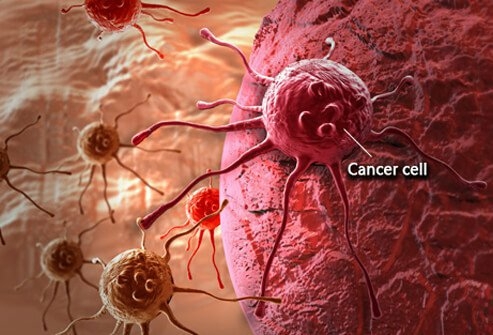5. WHY LIVER CANCER CAN BE HARD TO DETECT
Liver cancer is the fast growing cause of cancer deaths in the U.S., according to a new ACS report published in CA: A Cancer Journal for Clinicians. In fact, liver cancer deaths have doubled since 1980. Only 1 in 5 people will survive five years after they’re diagnosed, the report found. What’s more, the disease is more common in men—the ACS predicts 29,200 guys will be diagnosed with the disease in 2017.
Why it’s hard to detect: There hasn’t been a ton of progress in figuring out how to effectively detect liver cancer at an earlier stage before it spreads, says Kim Miller, M.P.H., an epidemiologist at the ACS. Serious symptoms—like loss of appetite, feeling very full after a small meal, abdominal pain, and jaundice—don’t really appear until the cancer has already become difficult to treat. Plus, your rib cage covers most of your liver, so it’s not easy for you or your doctor to feel a tumor there if you develop one, she says.
What you can do: Know your risk. A big reason liver cancer deaths are on the rise is because of the hepatitis C epidemic among Baby Boomers, or people who were born between 1945 and 1965, says Miller. Hepatitis C is the leading cause of liver cancer and liver transplants, since it can lead to liver damage and cirrhosis, scarring and inflammation of the liver, according to the CDC. That’s why the CDC recommends getting blood tests done to detect if you’ve ever been infected with the hepatitis C virus. Successful treatments can completely eliminate the virus from the body, minimising your risk of developing liver cancer. Even if you’re not among the Baby Boomer generation, getting yourself vaccinated against the hepatitis B infection can help keep you protected too, since it can also cause liver damage.
And if you are at high risk—meaning you have chronic viral hepatitis, cirrhosis, or metabolic disorders like excess bodyweight and type-2 diabetes—there are some physicians out there who offer screening tests, like ultrasounds and CT scans. But there isn’t yet data out there to confirm the effectiveness of them, says Mille






Discussion about this post